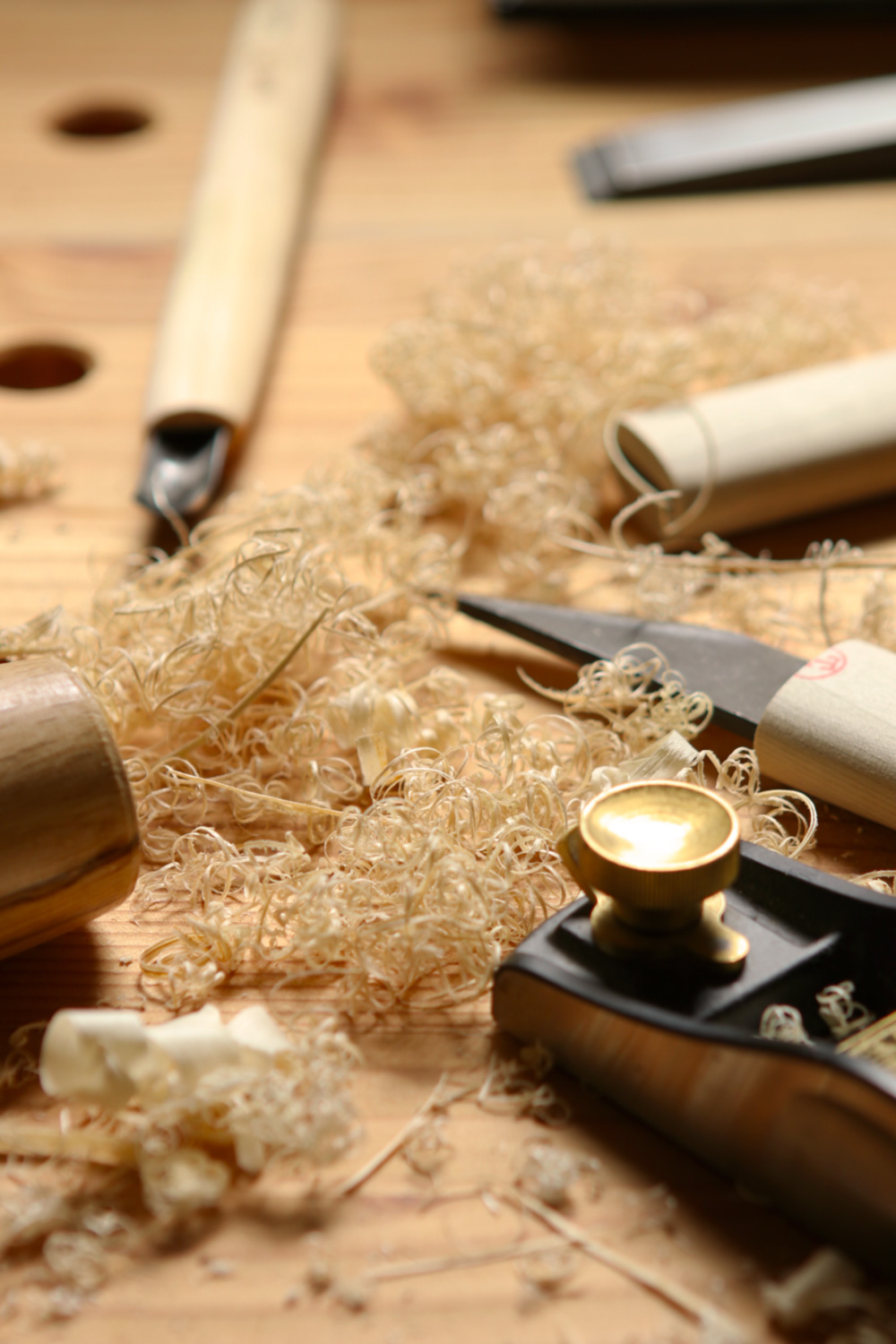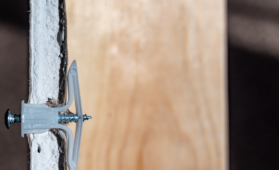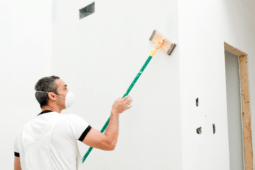When I Make Something For You, I Am Offering You My Humanity
Earlier this year, I agreed to complete a woodworking project for my wife. Actually, I offered and volunteered myself to do it. She has a particular storage need in her office, and because of the weird layout, access issues, scale, etc, it's not something that exists anywhere. It has to be custom built, and installed in the space.

The truth is, I've been avoiding it. It's a big project, and it was easy to move to the bottom of the project list when it was the height of summer. We had houseguests coming in and out of our home, and the days were long and full of activity.
But now, that season is over, and it's time to start building. I realized this week why I've been putting it off: I'm afraid. It's beyond my skill level, and requires a lot of moving parts that need to line up, just so. In any other situation, this wouldn't be something I'd agree to do, because it's too big of a leap; I need to learn to do too many new skills inside the same project.
But, all those things get thrown out the window when it's your partner who does the asking. She asked me to do it because she believes in me. She doesn't know why it's so hard to pull off, and it doesn't matter. She thinks I'm great, and talented, and knows there's a bunch of tools in that workshop she agreed I could build in our home, and it's exactly the kind of thing I should be able to make for her.
I am afraid because I know I'm going to make mistakes. Mistakes that use up materials, mistakes that use up a lot of time, and mistakes that, worse of all, will question my confidence. I wouldn't care if I were making this for me, or for someone I've never met, but for some reason, when it's the love of your life, the threat of error has left me paralyzed.
But she, of course, is right, and I am wrong. Because my mistakes are not her problem, they're mine. She is not asking for perfection. She is asking for me to help her with a project. She won't see the errors, I will. She won't care if I have to go back to the lumberyard to buy more materials. She will be on my side in whatever needs to happen, not because it's a project that she wants completed, but because we're partners, and partners support each other in situations exactly like this one.
This morning, while cleaning the kitchen, I was listening to an old episode of Shop Talk Live, the podcast from Fine Woodworking magazine. It featured an interview with Laura Mays, an instructor and program director at The College of the Redwoods.
She was exploring the idea of value in a handmade object vs. a machine-made one, and wonders if it's actually the imperfections of handwork that makes a piece really valuable. She says,
It's an interesting contradiction that as a craftsperson, one keeps trying to make things perfect; say, easing an edge, easing a corner over, trying to make it really even, really consistent. And yet it's not going to be really consistent, because your body moves in a certain way that consistency isn't the same as what a machine would achieve.
One's trying to be perfect…and yet in a way it's the imperfection that's valuable. So it's this kind bizarre contradiction [where you try] to make it perfect, and it's the imperfection that matters. I think that kind of tension is interesting.
I am offering you my humanity, my imperfection.
It's interesting how people coming to the [College of the Redwoods] program do it for self value rather than the value of the objects they're going to make. There does seem to be an element of transformation…in woodworking in general. It's as much for the maker than the person who interacts with the object in the future.
That touched me. Hard.
In this project for my wife, the transformation will have to be my willingness to give her something that isn't perfect. It will embracing the idea that it's better for me to spend my time actually making those mistakes, rather than sitting around anticipating what they might be. It will be understanding that you don't get to be an expert at something you've never tried before. That's easy to stay in my head, but my heart struggles.
I did start the build this weekend. The photo at top shows some of the tools and shavings on my bench. The truly hard, technical work is still ahead, but I've moved past step one, which, as cliché as it sounds, was actually the most difficult part.
This is what I'll keep telling myself in the process: when you make something for somebody, you offer them your imperfect humanity. You share yourself with them. Like the crafted piece itself, you are giving a perfectly functional, but ultimately flawed object. And they won't focus on the errors, just the good stuff. And it will be enough.









